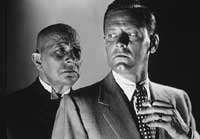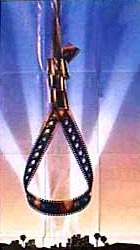 Occasionally I receive requests to read a first draft and even a first draft by a first time writer. I do indeed offer story consultancy but these are requests to read - for free - with the hope of getting a producer's attachment. With all due respect, but you've gotta be kidding. (Disclaimer: if you're allergic to preaching, better skip this blog. If you disagree with anything, you are invited to comment)
Occasionally I receive requests to read a first draft and even a first draft by a first time writer. I do indeed offer story consultancy but these are requests to read - for free - with the hope of getting a producer's attachment. With all due respect, but you've gotta be kidding. (Disclaimer: if you're allergic to preaching, better skip this blog. If you disagree with anything, you are invited to comment)
First-time writers sending out a first draft should get a grip. Get out of your hole and find out how competitive this industry is. But is the writer really to blame? Our industry itself has created a perception that writing for the screen is a fun occupation, a lifestyle thing that can be easily combined with any other job. And every attempt is to be taken seriously. Believe me, the reality is different. If you consider yourself a dilettante, your chances of breaking through are minimal. If your entire life doesn't revolves around movies , the odds are very much against you. Better get used to the idea or reconsider your future.
 Like 'aspiring practitioners' in other industries where the stakes are high, screenwriters and filmmakers tend to love the success stories of those who've made it, hence the popularity of events like POPCORN TAXI etc. However, success stories are filtered, censored and jazzed-up versions of the boring, down-to-earth and painful true events they are based upon. Like their screenplay counterparts, true facts don't sell.
Like 'aspiring practitioners' in other industries where the stakes are high, screenwriters and filmmakers tend to love the success stories of those who've made it, hence the popularity of events like POPCORN TAXI etc. However, success stories are filtered, censored and jazzed-up versions of the boring, down-to-earth and painful true events they are based upon. Like their screenplay counterparts, true facts don't sell.
The six movies to which writer Andrew Stanton contributed, have made several billions of dollars worldwide, yet he calls his growth to understanding story: “MY JOURNEY OF PAIN”. Andrew is part of the Pixar team and more about that in a minute.
Unlike Stanton, most great examples usually provide handy tips 'n' tricks, common sense advice or even sheer nonsense. Mostly it boils down to: if you really want something, you can get it. It's great stuff to remove feelings of guilt (for not being serious about your business) and doubt (about your chances of ever making it).
 Now here is something only a few honest - and therefore 'boring' - speakers will ever tell you: if you want to get there, you will have to make sacrifices. And your partner/family etc. will have to make sacrifices with you. Single? Your chances have just doubled. Still, the higher you want to reach, the greater the sacrifices.
Now here is something only a few honest - and therefore 'boring' - speakers will ever tell you: if you want to get there, you will have to make sacrifices. And your partner/family etc. will have to make sacrifices with you. Single? Your chances have just doubled. Still, the higher you want to reach, the greater the sacrifices.
Forget sports, hobbies, friends etc. Forget those success stories in Weekend Magazine about millionnaire business people who work out an hour a day, eat every dinner with the family and spend half of the year holidaying in Europe. Bullshit. Before they got there, they all went through divorce, mental breakdown, booze, suicide attempt or even worse: 18 hour days working for a boss!
You better be prepared as screenwriting is no different. To get through these horrible times of wanting but not getting, what you need is: obsession. It may or may not speed up things, but like drugs or alcohol, it alleviates the pain. Unfortunately it is just as socially unacceptable.
Here is a test. How much time do you spend on movies every week? Watching, reading, talking, thinking, writing about movies and the business of movie making? If you rate over 20 hours, I reckon you have a chance. Between 10-20 it may still work if you are an unusually smart person and/or have the financial resources to sit it out for a while. Under 10 hours you should stop kidding yourself: this is a hobby and you're not serious.
 Aaah!! I can hear the geniuses object! Obviously I need to make a special exemption for you. The odds are indeed VERY different. If you are one, give up your dreams NOW as you'll have to die before finding recognition. Nobody will understand your genius touch anway.
Aaah!! I can hear the geniuses object! Obviously I need to make a special exemption for you. The odds are indeed VERY different. If you are one, give up your dreams NOW as you'll have to die before finding recognition. Nobody will understand your genius touch anway.
I could go on for a while but it would take too many CAPITALS and italics. Boring.
Cut to the bottom line:
BE OBSESSED OR QUIT!
PIXAR STORYTELLING - SATURDAY 21 OCTOBER, L.A.
 This October sees the fifth edition of the SCREENWRITING EXPO in Los Angeles. For the cost of an airline ticket + USD$140.95, you'll have the opportunity to hear the most successful working Hollywood storytellers, all in one day: PIXAR STORYTELLING.
This October sees the fifth edition of the SCREENWRITING EXPO in Los Angeles. For the cost of an airline ticket + USD$140.95, you'll have the opportunity to hear the most successful working Hollywood storytellers, all in one day: PIXAR STORYTELLING.
For the first time to my knowledge, the people behind PIXAR's story department will speak about their craft in public. And if you're not convinced about their skills and talent, try coming up with any other studio matching their hit rate. For twenty years now, they have been churning out hit after hit, reaching the broadest possible audiences worldwide.
DVD COMMENTARY: PIXAR
If you can't afford the trip to LA, the least you can do is check out the commentaries on the Pixar DVDs. I mean: every single one of them. From the very first TOY STORY to their most recent THE INCREDIBLES, they are all diamonds of storytelling. Most of these movies have been written or co-written by the director and if they aren't, chances are the writer sits in on the commentary. As expected, a lot of attention goes to the digital work but the Pixar guys ALWAYS provide excellent comments on the specifics of their stories.
 On MONSTERS INC., they go as far as calling up one of the writers during the recording to ask him why they cut Mike Wezowski's marriage proposal to Celia (answer: it would have diluted his 'buddy' relationship to Sulley). Here is your complete Pixar shopping list, to make sure you don't miss out on any of their gems.
On MONSTERS INC., they go as far as calling up one of the writers during the recording to ask him why they cut Mike Wezowski's marriage proposal to Celia (answer: it would have diluted his 'buddy' relationship to Sulley). Here is your complete Pixar shopping list, to make sure you don't miss out on any of their gems.
The commentary on FINDING NEMO is definitely the most sophisticated as it jumps out of the movie into side tracks showing various aspects of the 'making of', with a total duration of well over the movie's running time.
LOOSE ENDS: PIXAR DOWN UNDER
It has just been announced that mid next year, the travelling exhibition PIXAR, 20 YEARS OF ANIMATION will come to Melbourne. Here's hoping some of the talent will come over with it.
And if you haven't already seen CARS (because some idiot told you it is a lesser Pixar), go see it.
OZZYWOOD GARAGE SALE + THE ULTIMATE TEST
If you recognize the first four pictures in this blog, email me the corresponding movie titles and you will be taken off my 'dilettante list' PLUS I'll send you a DVD*, VCD* or soundtrack CD* (*of my choice) if you're among the first five correct answers. And I will read the synopsis of your next work. For free.
 Turning real events into a working screen drama is a hell of a challenge. Whether it be a historical movie, biography or docu-drama, the smart screenwriter remains true to the spirit of the subject rather than an accurate report of the events. Plus: the principals of drama must dictate how the story is (re-)structured. UNITED 93 turns out a phenomenal success on all fronts.
Turning real events into a working screen drama is a hell of a challenge. Whether it be a historical movie, biography or docu-drama, the smart screenwriter remains true to the spirit of the subject rather than an accurate report of the events. Plus: the principals of drama must dictate how the story is (re-)structured. UNITED 93 turns out a phenomenal success on all fronts. You may argue that this structure is a mere reflection of the facts. Don't forget filmmakers have always made their own choices about how and which events are presented over the course of the available screentime. With this subject matter I don't believe Greengrass really had to be this rigorous in his structuring for the movie to have an adequate effect. Still he did. Why? To create maximum empathy with the protagonists. And boy it pays off!
You may argue that this structure is a mere reflection of the facts. Don't forget filmmakers have always made their own choices about how and which events are presented over the course of the available screentime. With this subject matter I don't believe Greengrass really had to be this rigorous in his structuring for the movie to have an adequate effect. Still he did. Why? To create maximum empathy with the protagonists. And boy it pays off!







